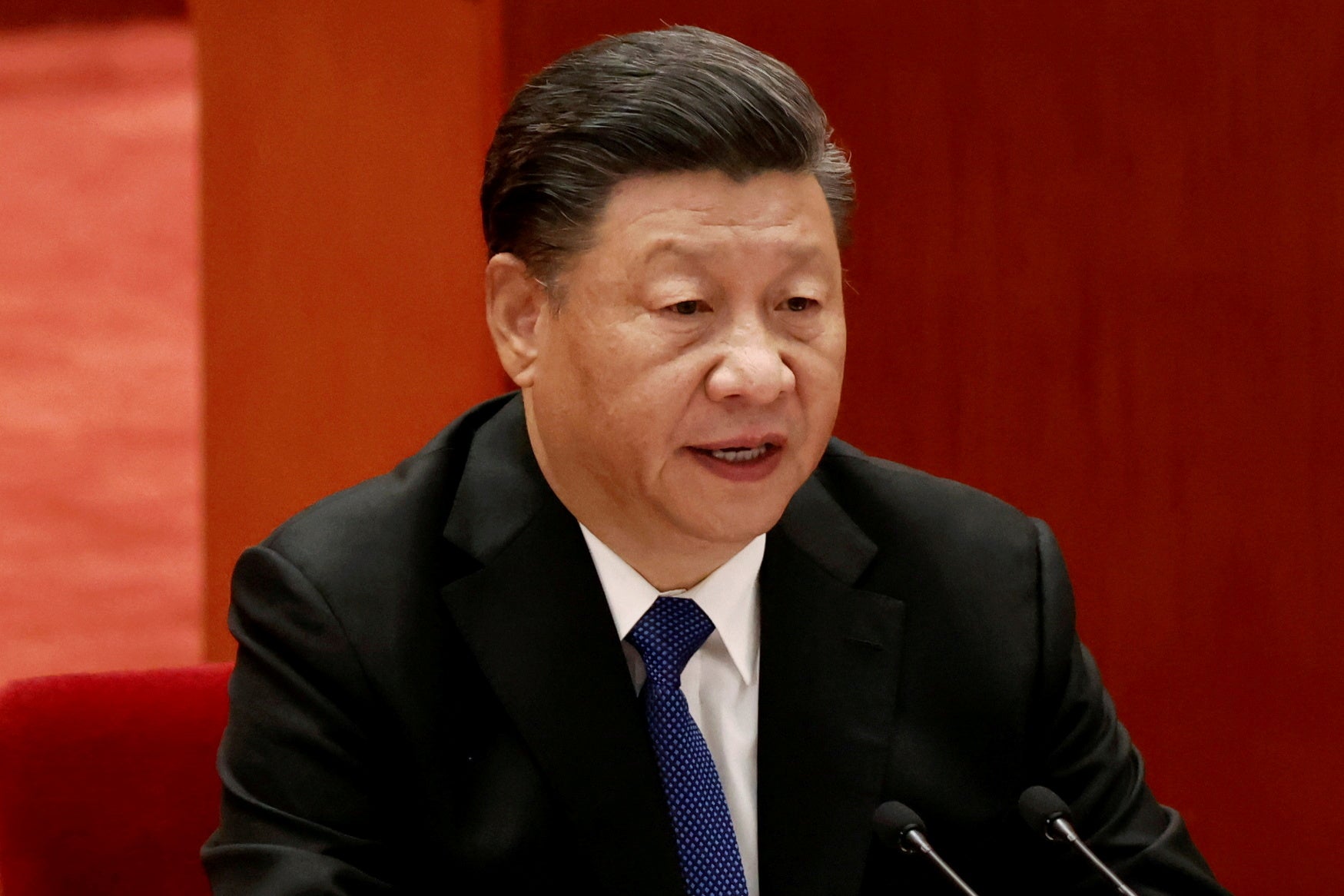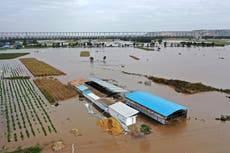What a Xi Cop26 no-show would reveal about China’s climate goals
The Chinese leader’s apparent refusal to go to Glasgow might be viewed as Beijing refusing to cave into pressure on any new global emission targets, reports William Yang


With two weeks to go until the Cop26 climate summit in Glasgow, some world leaders are increasingly worried that countries may fail to reach a consensus on the necessary carbon emission cuts necessary to reduce the impact of climate change.
It has been speculated that Chinese president Xi Jinping may not attend Cop26 in person later this month, raising concerns among British organisers that China, which emits more greenhouse gas than the entire developed world combined, may refuse to set new goals to combat climate change amid the country’s current energy crisis.
Adding to the concerns ahead of the summit, US climate envoy John Kerry has predicted the summit will likely end without a consensus on carbon emission cuts.
In an interview with the Associated Press, Kerry predicts that some countries may fall short and leave gaps in meeting the 1.5 celsius target. “By the time Glasgow’s over, we’re going to know who is doing their fair share, and who isn’t,” he said.
Regardless of what happens, much of the coverage is likely to focus on China. Some analysts think Xi’s possible absence suggests it will be difficult for countries to come up with a deal at the climate summit in Glasgow.
“China revealed the climate commitments that it’s willing to make very early, even though those goals fall well short of what will be required to meet the 1.5C target,” said Lauri Myllyvirta, the lead analyst for the Centre for Research on Energy and Clean Air.
“If the world was hoping for some kind of last-minute deal to emerge by the end of Cop26, it will be harder because Xi probably isn’t going to be in Glasgow in person,” he told The Independent.
“Since Xi made major announcements regarding China’s climate commitment more than a year ago, there is a whole process in China to implement those goals at all levels, and if Xi Jinping goes to Glasgow and comes back with new targets, that might be viewed as Beijing caving into pressure,” he said.
China has been troubled by widespread power outages in recent weeks, fuelled by shortages of coal, high energy prices and the growing post-pandemic industrial demand. On 13 October, China’s premier Li Keqiang reiterated the importance of ensuring regular power supply after rolling blackouts across the nation forced factories and homes into darkness.
In a statement issued following a meeting of China’s National Energy Commission, Li stressed that energy security should be “the premise on which a modern energy system is built” while China should enhance its capacity to facilitate energy self-supply.
“Given the predominant place of coal in the country’s energy and resource endowment, it is important to optimise the layout for the coal production capacity, build advanced coal-fired power plants as appropriate in line with development needs, and continue to phase out outdated coal plants in an orderly fashion,” Li said in the statement.
As Li promised to intensify China’s oil and gas exploration, he also said the Chinese government wants to collect new evidence about when it might reach its peak of carbon emissions. According to the statement, Li has commissioned a series of studies following China’s recent waves of power outage.
For Myllyvirta, the two things worth highlighting were Li’s emphasis on securing more fossil fuel supplies, and his call for conducting more studies into the timeline of the peak of China’s emissions.
“You can read it as supply and demand are inline, but really what it looks like is pushing for a later CO2 peak and a higher level at which CO2 emissions will peak within that parameter set by the 2030 target,” he told The Independent. “It’s in relation to what has been drafted internally by the Chinese government at the moment.”
With Xi Jinping unlikely to attend the climate summit in person, Myllyvirta expects China to give more details about the specific pathway to realising their climate pledges, while other countries that haven’t revealed their climate goals might come up with something new.
“What we can expect is countries attending the summit will consolidate those things into an outcome document and hopefully recognise it’s not sufficient to reach the 1.5 C goal,” he said, adding that countries that want to see a more ambitious global target need to figure out all the ways that they can use to put pressure on other countries.
“It may be one factor that influences other countries when they are determining their pathway for cutting carbon emissions,” Myllyvirta says. “For example, when Beijing receives a clear message that they might lose market access if they keep increasing emissions over this decade, that will become a factor when they are making decisions.”
Despite the possible absence of Xi, world leaders including Australian prime minister Scott Morrison, US president Joe Biden, French president Emmanuel Macron, Canadian prime minister Justin Trudeau and former US president Barack Obama are still expected to attend COP26 in person.
Join our commenting forum
Join thought-provoking conversations, follow other Independent readers and see their replies
Comments





Bookmark popover
Removed from bookmarks